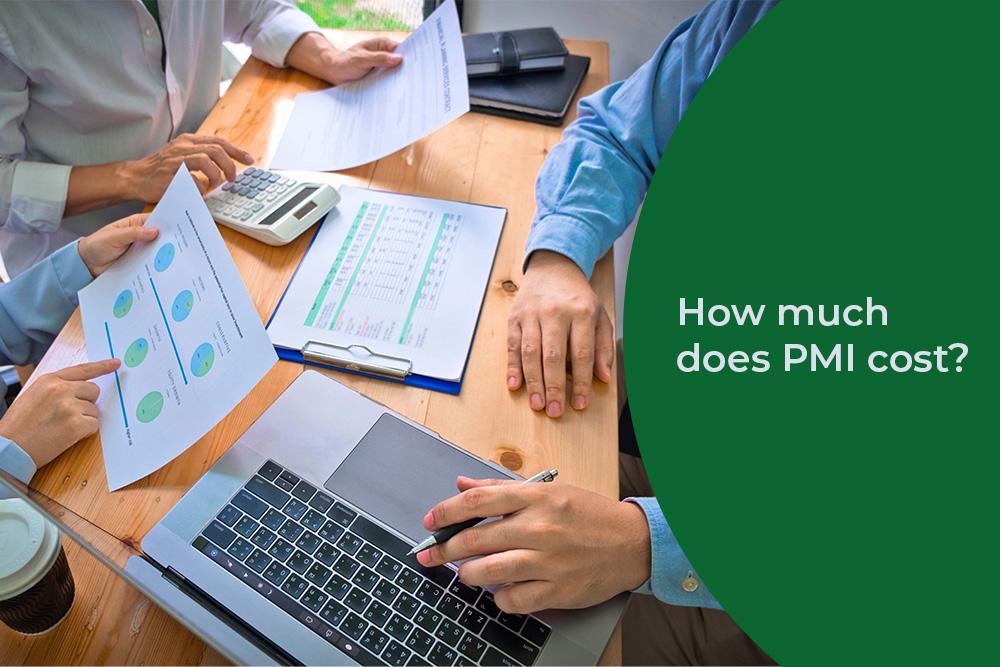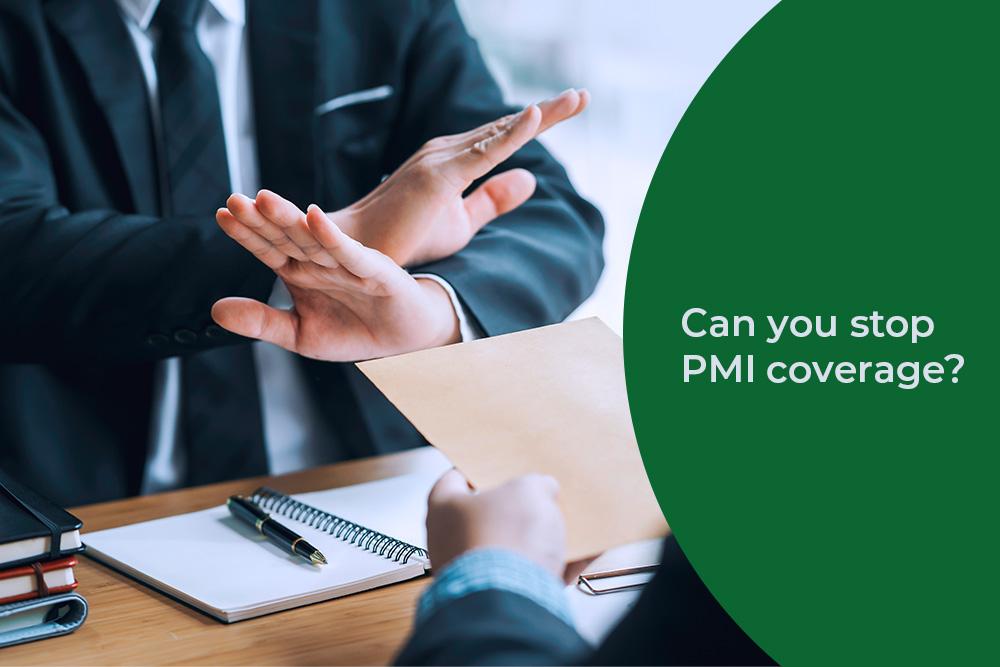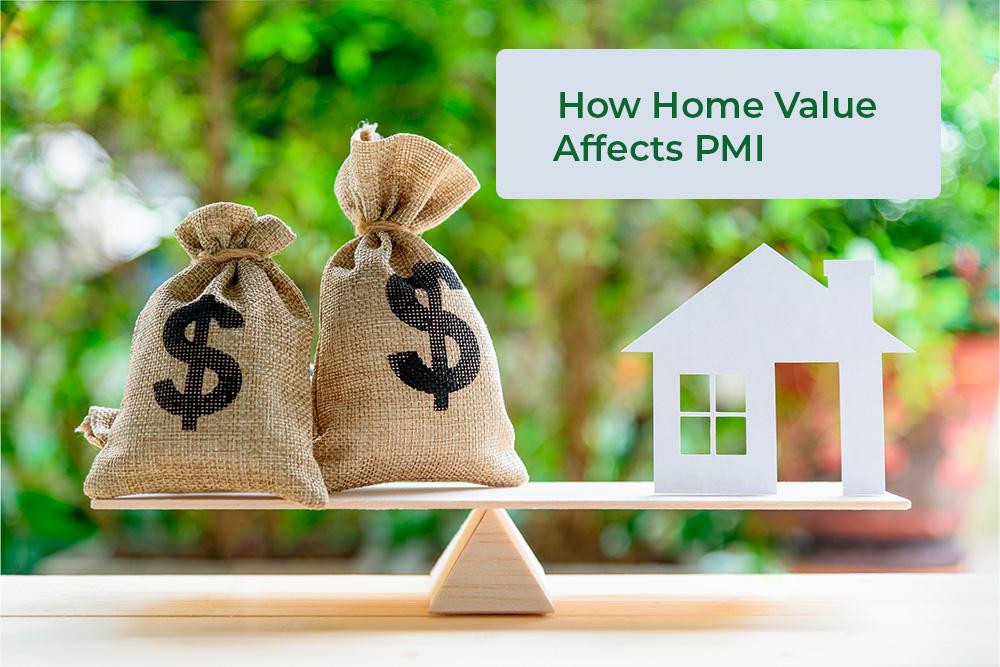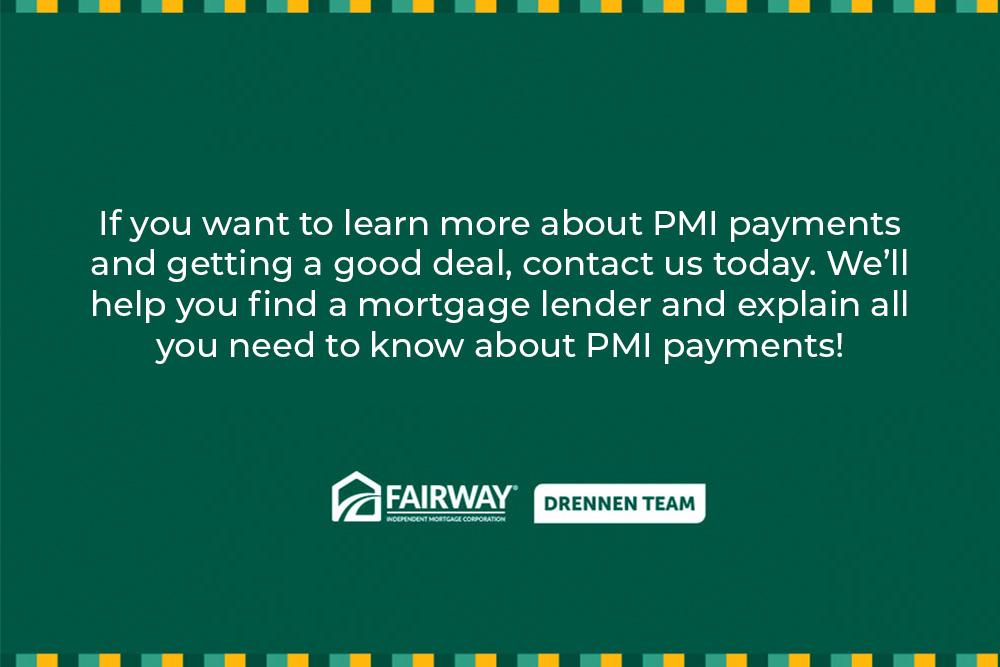When you’re looking to buy a home, you may have the option of making a down payment under 20% depending on your personal circumstances. If you qualify for a lower down payment, however, you’ll likely need to mitigate the risk to the lender. Lenders tack on another expense that you owe each month called private mortgage insurance, or PMI. Even though you’re paying a lower upfront amount with a smaller down payment, PMI does add more to your monthly mortgage payments. Fairway Mortgage in Las Vegas can explain the pros and cons of PMI and when it makes sense to choose a lower down payment.
What is private mortgage insurance (PMI)?
PMI is a special kind of insurance that is unique to mortgages. Many conventional loans require a minimum down payment of 20%. However, you can apply for home loans with a lower minimum down payment. If you qualify for a lower down payment based on your current financial situation, a lender will add on a mortgage insurance payment every month. People who make a lower down payment are considered riskier in the eyes of a lender. Therefore, mortgage insurance helps protect lenders in case you can’t keep up with your monthly payments or you default on the loan.
How much does PMI cost?

The amount that you must pay for PMI varies among mortgages in Las Vegas. However, the average cost ranges from $30-$70 per month for every $100,000 you borrow. The amount you owe in PMI monthly varies based on multiple factors, including your credit score and loan-to-value ratio, which is the amount of money you borrow for your mortgage compared to your home’s value. Since monthly PMI payments can add up, you’ll want to discuss your options with a mortgage lender first to figure out how to get the lowest possible rates. When you’re considering mortgages in Las Vegas, be sure to ask a prospective lender about the cost of PMI if you’re going to make a down payment of less than 20%. Lenders vary in their rates, so it’s a good idea to check with several lenders to get a quote before settling on a final mortgage.
How to Pay for PMI
As you’re narrowing down your options for home loans, you’ll want to look at how you can pay for PMI with the loan you choose. PMI payments are available in several options, which a mortgage company in Las Vegas can explain. You can pay your PMI as an up-front payment that you pay at the time of the home closing, or you can make monthly PMI payments. The most common option is to make incremental monthly PMI payments. When you get your loan estimate and disclosure documents, the PMI payments that you need to make will appear in the “Projected Payments” section of the mortgage documents.
You may also be able to make your PMI payments upfront depending on the lender and your personal preferences and financial comfort. One consideration to think about is that if you choose an upfront payment for your PMI, you usually can’t get a refund if you move or refinance your mortgage. In some instances, you might end up paying some of your PMI payment up front, and then you’ll pay off the rest in monthly increments until the insurance payments are paid in full.
Can you stop PMI coverage?

The good news about PMI payments is that often, even if you need to make those payments initially, you won’t need to pay them for the entire duration of the loan. There are three options that you have available to cancel your PMI coverage, including:
- Automatic PMI termination
- Borrower-initiated PMI cancellation
- Final PMI termination
An automatic PMI cancellation starts automatically when you have less than 78% to pay on your outstanding mortgage balance. Legally, the PMI payments on your mortgages in Las Vegas must end at that time. If you’ve made all your PMI payments in full and on time up to that point, and if you have no liens, your PMI payments will end at that point. However, if you’ve had late payments or haven’t paid off all the PMI payments required up to a certain point, the lender can keep charging you for PMI payments until those payments become current.
Another option that you have is borrower-initiated PMI cancellation. That means you’ll need to take several steps to stop your PMI payments. Along with staying current on your monthly payments and making payments on your mortgage and PMI in full, you’ll also need to demonstrate a positive payment history, which means that you can’t have had any more than one late payment in the past 12-month period that was more than 30 days late, or more than one payment that was 60 days late in a 24-month period.
Additionally, you’ll need to submit a request in writing to have the PMI canceled. If the mortgage company in Las Vegas has any outstanding requirements, you’ll need to make sure to satisfy those requirements before the loan is canceled. While those requirements may vary by loan, some of the most common requirements are that the value of the property you own hasn’t declined below its original value and that you don’t have any other outstanding liens, such as a second mortgage.
Final PMI termination is when the lender must end the PMI payments. That happens after you’ve paid back 50% of the loan. For instance, if you take out a 30-year loan, your PMI payments will end after 15 years. The catch is that you must be current on your mortgage and PMI payments to date in order to have them stopped at that time.
How Home Value Affects PMI

The value of your home also affects your ability to cancel PMI payments. If the value of your home increases or appreciates over time, you have the option of canceling your PMI payments. However, if the value of your home decreases over time, you may end up making PMI payments longer than you anticipated. Sometimes, however, you can end your PMI payments early if the value of your home rises. If you remodel the home or make renovations, for instance, the value will increase, and you can end your PMI payments sooner. You can even request an early end to your PMI payments in some cases. Before canceling PMI payments, the lender will appraise the home to confirm its current value.
If you want to learn more about PMI payments and getting a good deal, contact us today. We’ll help you find a mortgage lender and explain all you need to know about PMI payments!









